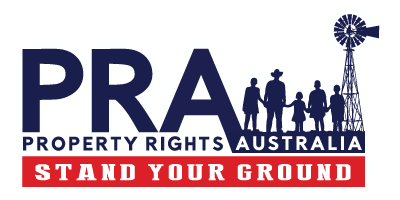5th July 2012
Tim Wilson of the Institute of Public Affairs
Tim Wilson, named by The Australian newspaper in 2009 as one of the ten most influential emerging leaders of Australian society was keynote speaker at the Property Rights Australia Conference held in Rockhampton on the weekend.
His knowledge and dynamic presentation impressed everyone.
With regard to certification schemes, initiated by Environmental Non Governments Organisations (ENGO’s) he had no problem if they remained voluntary and consumers still had a choice.
However their own documentation showed that their aim was always to increase the regulatory conditions and eventually have legislation introduced leaving no choice for consumers or primary producers.
If you join their scheme and you do not comply or if you leave, there is a massive publicity campaign against you or your industry.
ENGO’s recognise that attempting to convince six billion consumers [to adopt certified product] is a considerable task.
In response, WWF has developed its Market Transformation Initiative (MTI), which seeks to target products through the supply chain.
As WWF’s own assessment identifies, ‘between 300 and 500 companies control 70 per cent or more of the trade in each of 15 commodities that [they’ve] identified as having the biggest environmental impact’, and out of those companies, ‘100 companies control 25 per cent of the trade of all commodities … affecting around 50 per cent of all production’.
However the uptake of the schemes is hampered by their voluntary nature so different non market mechanisms are required by ENGO’s.
Such mechanisms could include national legislation, public procurement
policies, tax incentives and tax relief, and start-up grants. Financial institutions are also brought on board to enable MSIs.
These aspirations are now being put into practice, turning voluntary market schemes into involuntary ones.
WWF’s MTI strategy also outlines that while existing certification standards are useful, they are only one phase in the strategy.
According to the same strategy, WWF gloats that in response to the question whether ‘government regulation [is] the next step’ it argues ‘Yes, it’s already happening [and they’ve] …already set up standards that governments are using in their regulations’.
Further, WWF also poses the question about whether there will be a time when consumers will not have a choice between products that do and do not meet their standards. WWF agrees that ‘Absolutely … [and] at some point in the not-so-distant future, this needs to be regulated by governments, not NGOs’.
One of the techniques used to get companies on board is to do the good cop/bad cop routine.
Greenpeace is willing to play the role of good cop or bad cop in partnership with organisations. Its reputation for radical actions positions it particularly well to play the bad cop that can drive organisations to partner with groups that seem more middle-of-the-road in orientation.
In short, an activist ENGO targets a business over their environmental, social or economic record.
Another middle-of-the-road ENGO establishes a ‘voluntary’ certification scheme that, if adopted, would address these concerns and remove the criticism of the activist ENGO.
While a clever strategy, if as explicit as it appears to be written, it raises questions about whether these ENGOs may be colluding to the point of warranting questions of extortion.
For business, there is a cost for developing a relationship with ENGOs like WWF. If they adopt WWF’s standards they are essentially locked in and cannot leave without criticism. Meanwhile certification standards can increase over time adding further costs that businesses have to absorb.
Property Rights Australia has consistently argued against Australia’s beef industry being involved in the Roundtable for Sustainable Beef which fits neatly into WWF’s strategy for its Market Transformation Initiative starting with a voluntary easy –entry scheme but which will be ratcheted up over time.
For further information contact:
Joanne Rea, “Edengarry” KUNWARARA QLD 4702
Ph: (07) 49 356 231 Mobile: 0407 143 664 Email: ejrea@bigpond.com
________________________________________________________________________________
PRA is a non-profit organisation of primary producers and business people from rural
areas defending the rights of property owners
www.propertyrightsaustralia.org
